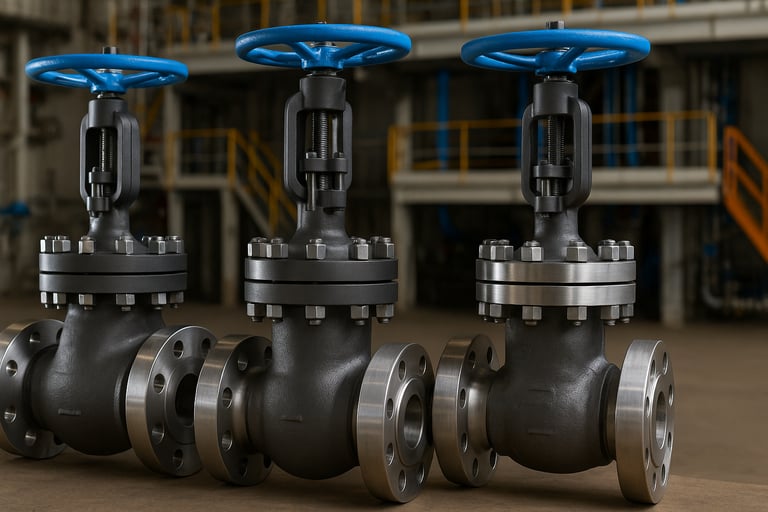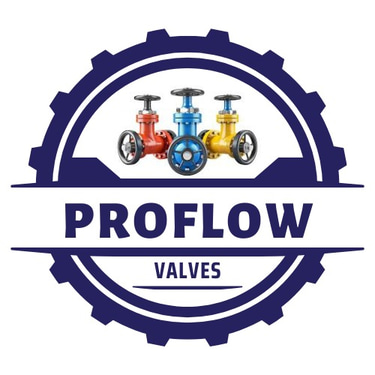Manufacturer & Exporter of all types of Valves, Pipes, Fittings and Flanges, etc
How to Select the Right Valve for Your Process
Discover how high-pressure valves support the performance and reliability of supercritical and ultra-supercritical power plants. This article examines their engineering design, material resilience, and role in managing extreme pressure and temperature, ensuring optimal efficiency and operational safety in modern power generation.
6/2/20252 min read


High-Pressure Valves for Supercritical and Ultra-Supercritical Power Plants
How to Select the Right Valve for Your Process
Selecting the right valve for an industrial process is a critical decision that affects performance, efficiency, safety, and cost. With a wide variety of valve types and specifications available, making the right choice can be challenging. This guide will help you understand key considerations in valve selection and why working with the best industrial valve manufacturer can make all the difference.
1. Understand Your Process Requirements
Before choosing a valve, it's essential to evaluate your system's operating conditions:
Flow rate and pressure: Determine the maximum and minimum flow rates and pressures.
Medium: Is the valve handling gases, liquids, corrosive chemicals, or slurries?
Temperature: Consider both the normal and extreme operating temperatures.
Control needs: Will the valve be used for on/off control, throttling, or pressure regulation?
2. Choose the Right Valve Type
Each valve type has its strengths. Here's a quick guide:
Valve Type :- Best For
Ball Valve :- Quick shut-off, low-pressure drop systems
Gate Valve :- On/off service in systems with infrequent use
Globe Valve :- Throttling and frequent operation
Butterfly Valve :- Large flow applications, cost-effective
Check Valve :- Preventing backflow
Control Valve :- Precision flow and pressure control
Consulting with the best industrial valve manufacturer ensures you get expert advice on which valve type fits your application.
3. Consider Valve Material
The valve body and internal components must be compatible with the process fluid:
Stainless Steel: Excellent corrosion resistance.
Brass: Good for water, air, and non-corrosive applications.
PVC/Plastic: Lightweight, corrosion-resistant for chemical use.
Alloys (e.g., Monel, Hastelloy): For aggressive media and high-temperature conditions.
The best industrial valve manufacturers will offer a wide range of materials and can help you match the right one to your needs.
4. Evaluate End Connections and Actuation
End Connections: Flanged, threaded, socket-welded, or butt-welded based on your piping system.
Actuation: Manual, pneumatic, electric, or hydraulic depending on automation level and process requirements.
Using automated valves from a reliable valve manufacturer enhances system performance, especially in complex operations.
5. Prioritize Quality and Compliance
Always ensure valves meet industry standards such as:
API, ANSI, ASME, DIN
ISO 9001 certification
Material traceability and pressure testing
Working with the best industrial valve manufacturer guarantees compliance with global standards, durability, and reliable performance under tough conditions.
6. After-Sales Support and Customization
A top-tier valve manufacturer provides:
Technical support
Customized design solutions
Fast delivery and global service
Spare parts and repair kits
Choosing a manufacturer that goes beyond the sale adds long-term value to your operations.
Quality
Delivering reliable valves for industrial applications worldwide.
Support
For General Enquiries:-info@proflowvalves.com
Sales Dept:- sales@proflowvalves.com
Or Contact Us at :- +91 9702308939/ +91 9702308258
